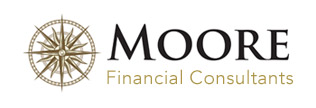Income Protection
Income Protection or Permanent Health Insurance (PHI) is a protection policy offered by life assurance companies that pays out a regular income should the individual insured suffer a loss of earned income by being unable to work due to sickness or disability.
These policies usually have a deferred period which can be 4/ 13 or 26 weeks. They only start to pay once the deferred period has passed.
It is important to note that there must be a loss of income, in order for a PHI benefit to become payable. It is not enough just to be sick.
The term ‘permanent’ in Permanent Health Insurance relates to the fact that, once the life company has issued the contract, it cannot cancel it, no matter how many times or for how long there are claims made under the policy, provided the policyholder continues to pay the premiums due.
The benefit is payable for as long as the individual is suffering from ‘disability’ beyond the deferred period, which usually means being unable though sickness or disability to follow the individual’s own occupation or any other occupation for which he or she is reasonably suited or trained.

Income protection benefit is payable until the earlier of:
- The life assured returns to work.
- The life assured is deemed fit to return to work
- The benefit cessation age. These policies usually have a fixed age at which payment of the benefit ceases in any event, usually referred to as the ‘benefit cessation age’. Life companies may offer a choice, say 55, 60 or 65. Obviously the older the benefit cessation age, the higher the premium cost, as the benefit, if it becomes payable, could be payable for a longer period of time.
- The life assured retires.

You can download our guides to insurance here
Insurance Guides
Our Insurance Agencies

MOORE FINANCIAL
CONSULTANTS
NEWSLETTER
Sign up to our newsletter to keep up to date with all the latest relevant financial information.



